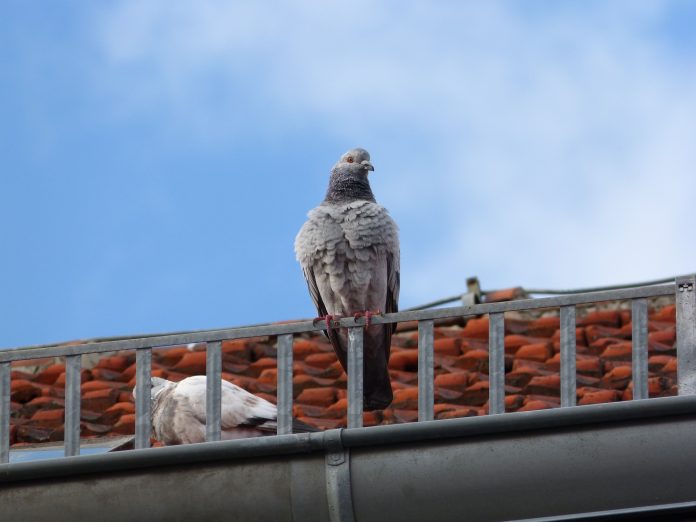We all love the sound of bird song around our gardens. Unfortunately, certain breeds can be problematic when it comes to home maintenance and personal well being. The most prevalent area to give most of us grey hairs when it comes to a bird problems is our homes roof.
Birds prefer stable structures that provides good shelter and safety. As a good mountain side offer overhangs and a stable structure to nest in so to does your home roof, chimney and gutters. Now we are left with a range of problems that we would like to deal with in a humane and no fuss manner. I will first list the health risks associated with a bird infestation.
Disease and other risks
- Histoplasmosis – Fungus, that grows in droppings and carry health risks
- Salmonella – Bacteria, in droppings and carry health risks
- E.coli – Harmful variation of intestinal bacteria found in birds gut
- Onycholysis – Bacteria, from dried bird droppings and carry health risks
- Bird Mites – Parasite, that can spread to humans
- Fleas – Parasite, that can spread to humans
- Flies – Common fly, that can spread above mentioned disease directly to humans
The above mentioned are all harmful to humans and associated with bird infestations. Indicators of fungal and bacterial growth is a sharp smell and unusual number of flies around certain areas of your roof. It is important to note that dried droppings turns into a fine powder over time. This powder is easily spread throughout your house by air vents, air conditioning units or a breeze through you open window. So now we know it does not only smell bad and give us extra work on the weekends but it can also make us ill.
Other problems include droppings that need to be cleaned on a weekly basis, paint damage, nesting debris blocking your gutters and plant growth on your roof.
What we want to do is stop birds from nesting on the roof. This means attempting to stop birds from considering your roof as a suitable nesting area. Below I will list a few repellents that can stop the problem before it begins.
- Predator Decoys
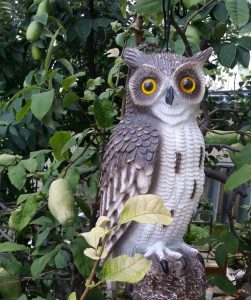
This is an attempt to fool the birds into thinking that there is a natural predator in the area thus keeping them away. Different models of the decoys come with extra features like movement and sound. The more “real” the more effective. These decoys are available at most leading garden retail outlets.
- Predator Calls
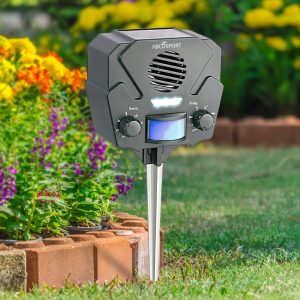
Similar to the above mentioned you can get a standalone sound playing unit that play predator calls to keep unwanted birds away.
Ultrasonic Frequency – These units play high frequency sound that only birds and rodents can hear. The sound disorientates birds making landing harder.
- Bird Spikes
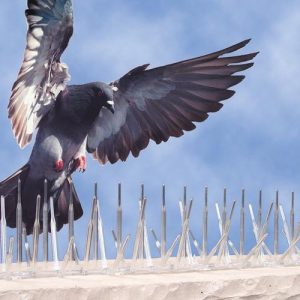
Sounds worse than it is. This is a spike strip designed to be placed in preferred landing areas. These spikes strips make landing impossible and the bird will look elsewhere.
- Bird Nets
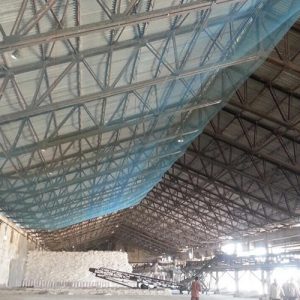
A bird net is placed over possible landing areas. Bird nets are designed to make it hard for the birds to have a stable landing. This will force them to look elsewhere.
- Repellent Gel
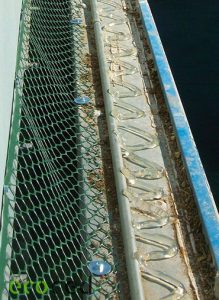
This gel is nontoxic sticky substance that makes it uncomfortable for the birds to land and sit. A bird tends to keep its feathers clean for flight and will avoid any area with a sticky surface. Some of the gels on the market is scented with a repellent smell.
- Repellent Chemicals
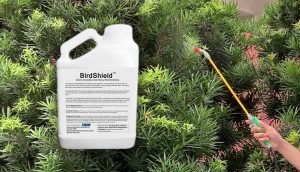
Non-toxic and non-lethal these chemical are scented and are mild enough to be used around the property without special permission or approval.
- Disturbing the Vision
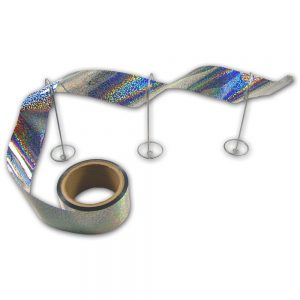
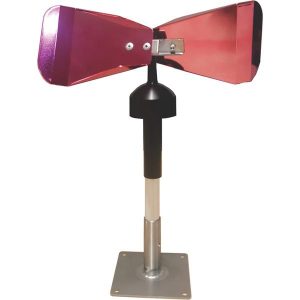
Birds have very good eye sight that they use to navigate and land. These nifty devices and reflective tape disturb the bird’s eye sight by reflecting light at angles that disorientate the bird’s sense of depth and direction.
Weekend Warrior
Now for those stubborn birds that have decided to declare war on you weekend warrior efforts. Your first option for “do it yourself” will be trapping. Make it your business to trap the birds and release them back into nature. The down side to this is the effects only last as long as you keep trapping.
The second and final option is to call in the professionals. It might cost you more but you will be dealing with someone that will give you certain guarantees depending on the extent of your problem.
As with all matters concerning animals and chemicals it is always recommended to get a trained professional to help you with an infestation problem. They have been trained to recognize potential risks and deal with them accordingly.
This is a vast subject with many remedies. Contact a professional for more info.



